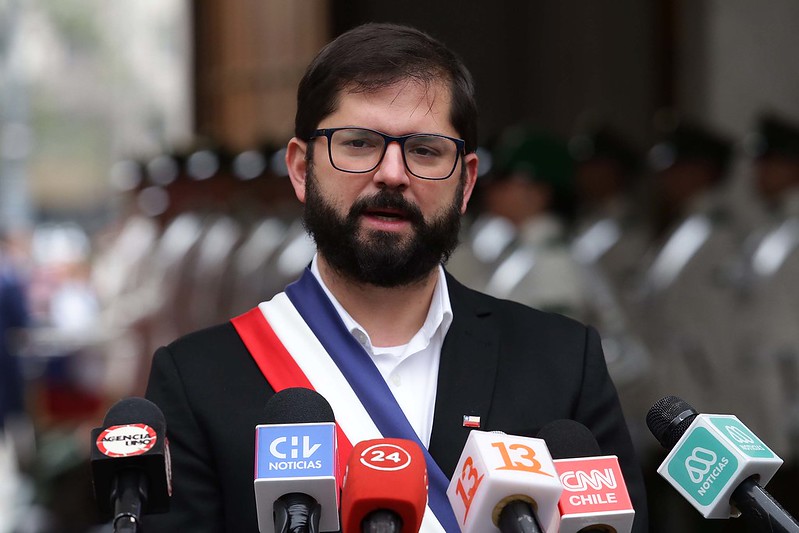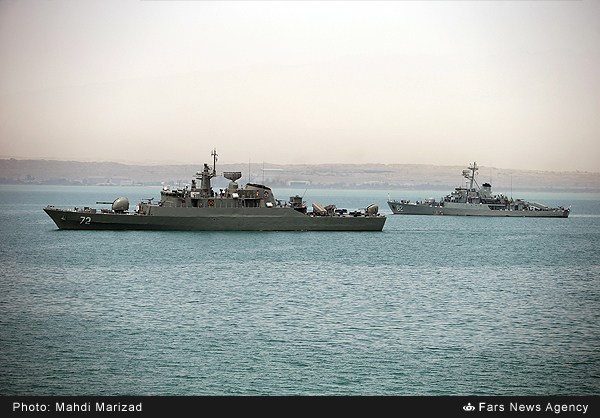
Chilean President Gabriel Boric has focused extensively on the country’s lithium reserves as a source of global influence and for Chile’s development.
“We highly value the spirit of collaboration and shared growth in the spirit of building a new world order based on peace and harmony among peoples.”
China has viewed Latin America as an important source of critical minerals, such as lithium, copper, graphite, cobalt, and nickel for well over a decade.[i] The tenth anniversary of China’s Belt and Road Initiative (BRI) in Beijing, with representatives from nearly 130 countries including Chile’s President Gabriel Boric and Argentina’s President Alberto Fernández, provided another occasion for China to make further advances in the competition for access to Latin America’s critical minerals, specifically, lithium. While Chile has the region’s most developed lithium mining industry, Argentina is developing the sector, and Bolivia, with the largest lithium reserves, has the least developed mining sector. Chile permits only a small number of mining companies to operate in the lithium industry, one of which is China’s state-owned Tianqi Lithium. Meanwhile, China’s mining companies have made inroads in Argentina’s lithium industry. Ganfeng Lithium, for example, is a majority stakeholder in Argentina’s Caucharí-Olaroz operation, which will soon be one of the world’s top lithium production mines.
As per the first excerpted article from the second-largest daily newspaper in Chile, La Tercera, while in Beijing, President Boric reiterated Chile’s commitment to China’s BRI and thanked President Xi Jinping for the “spirit of collaboration and shared growth.” Boric also pronounced Chile’s support for a multipolar world order and thanked China for its focus on development. Meanwhile, according to the second excerpted article from Spain’s largest daily, El País, Boric announced a multimillion-dollar investment by the Chinese company Tingaran in battery production in Chile. Boric’s trip to Beijing for the tenth anniversary of the BRI is significant because it demonstrates China’s steadfast focus on lithium as a key driver for future economic growth and global economic governance through reusable battery technology. Further, China’s investment in Chilean battery production represents the first investment in Chile’s nascent battery production potential. Moving up the lithium value chain is a stated goal of the country’s National Lithium Strategy released earlier in Boric’s administration. China has worked hard to position itself as Chile’s long-term economic partner of choice and showing that it is interested in building value chains beyond mineral extraction in the country will be key to that endeavor.
Sources:
“Boric sostiene bilateral con Xi Jinping: ‘Valoramos mucho el espíritu de colaboración y crecimiento compartido’ (Boric maintains bilateral with Xi Jinping: ‘We highly value the spirit of collaboration and shared growth’),” La Tercera (second largest daily newspaper in Chile), 16 October 2023. https://www.latercera.com/politica/noticia/boric-sostiene-bilateral-con-xi-jinping-valoramos-mucho-el-espiritu-de-colaboracion-y-crecimiento-compartido/FFSYQHIWVRDBLO4EIOOLE6ECVA/
While visiting with Xi Jinping, Boric announced: ‘We maintain and are going to defend multilateral spaces and the principle of ‘one China,’ a premise that has been observed in an unrestricted manner by our country throughout the more than 50 years of bilateral relations. Furthermore, we highly value the spirit of collaboration and shared growth in the spirit of building a new world order based on peace and harmony among peoples.’ For his part, the Chinese president maintained that ‘relations between Chile and China are one of the best in the Latin American and Caribbean region. Chile is the pioneer of the Belt and Road in that region. China pays a lot of attention to relations with Chile.’
“Boric anuncia una millonaria tilized de una empresa china para fabricar baterías de litio en Chile (Boric announces a million-dollar investment by a Chinese company to manufacture lithium batteries in Chile),” El País (Spain’s largest daily with some of the best coverage in Latin America), 16 October 2023. https://elpais.com/chile/2023-10-16/boric-anuncia-una-millonaria-inversion-de-una-empresa-china-para-fabricar-baterias-de-litio-en-chile.html The president of Chile…announced an investment of more than 250 million dollars by the Chinese group Tingaran, specialized in lithium, that will create hundreds of jobs…the group is engaged in the research and development, production and sales of lithium-ion battery cells applied to power systems of electric vehicles, including electric mining trucks, and other equipment. According to Boric, the most important thing is that ‘we are not going to limit ourselves only to extraction but we are going to create value chains and also transfer knowledge because one of the commitments that the company has made is to generate exchange programs so that Chilean professionals can travel to China and also train in the development of this industry. So we are going to be advancing the National Lithium Strategy with investments like these with which we are very happy.’
Notes:
[i] For more information on China’s advance in important mining spaces such as the lithium industry, see: Ryan C. Berg and T. Andrew Sady-Kennedy, “South America’s Lithium Triangle: Opportunities for the Biden Administration,” Center for Strategic and International Studies, 17 August 2021. https://www.csis.org/analysis/south-americas-lithium-triangle-opportunities-biden-administration
Image Information:
Image: Chilean President Gabriel Boric has focused extensively on the country’s lithium reserves as a source of global influence and for Chile’s development.
Source : https ://www.flickr.com/photos/consejocultura/52377478252
Attribution: CC BY-NC-SA 2.0 DEED

